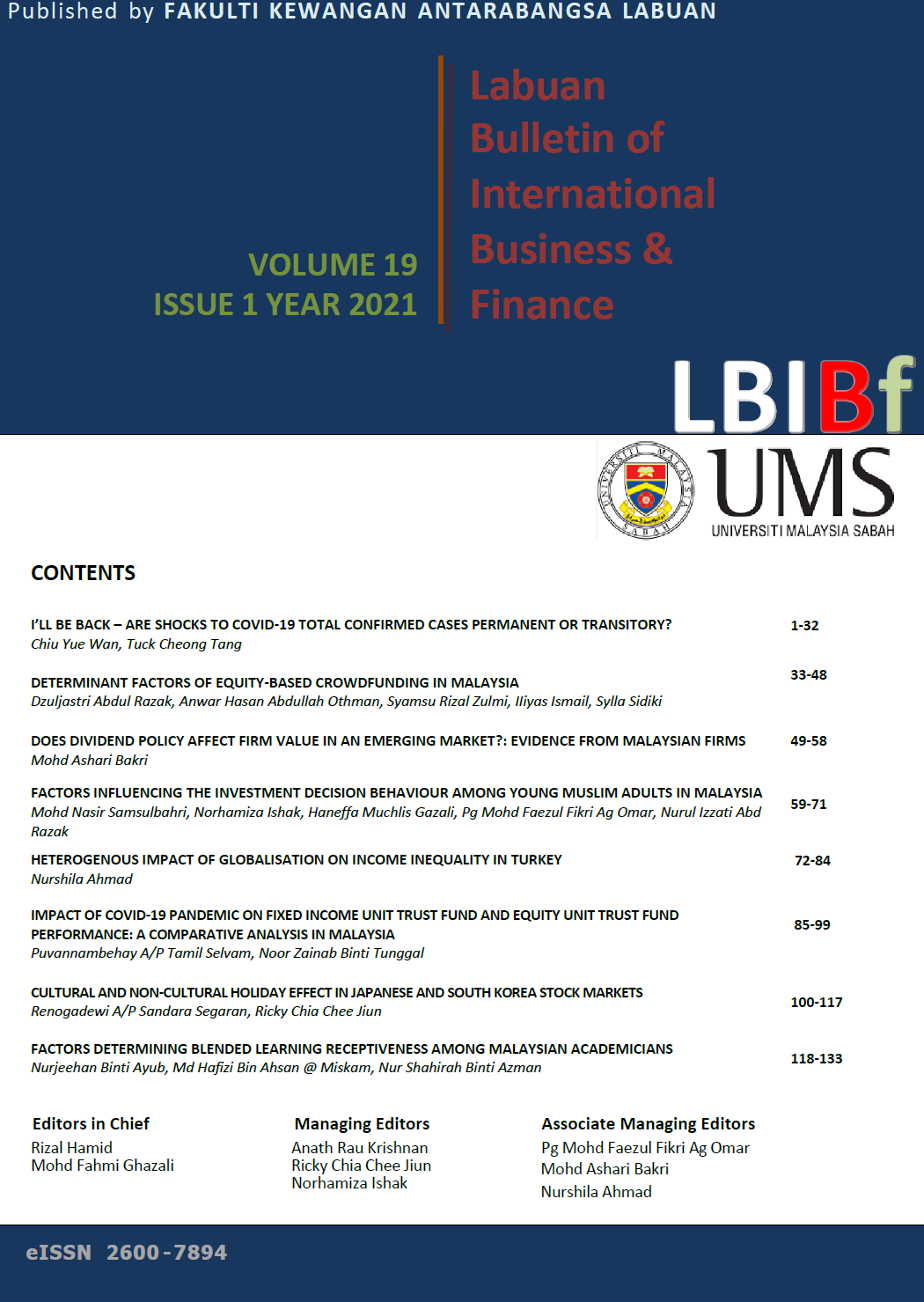CULTURAL AND NON-CULTURAL HOLIDAY EFFECT IN JAPANESE AND SOUTH KOREA STOCK MARKETS
DOI:
https://doi.org/10.51200/lbibf.v19i1.2930Abstract
This paper investigated the existence of cultural and non-cultural holiday effect in Japanese and South Korea stock markets consisting of four selected stock indexes which are Nikkei 225, JASDAQ, KOSDAQ and KOSPI. Descriptive statistics and Ordinary Least Square (OLS) with dummy variables are adopted to examine the average returns and associated with the cultural and non-cultural holiday effect behavior. It is found that post-holiday and cultural post-holiday effects happened in Nikkei 225 while KOSDAQ only showed cultural post-holiday effect. On the other hand, insignificant holiday effect was found in JASDAQ and KOSPI. This holiday and cultural influences can be explained with the arguments from the trading behavior where both countries have their own cultural, own nation holidays and traditional days affecting the trading patterns in the stock markets.
Downloads
Published
How to Cite
Issue
Section
License
Copyright (c) 2021 Labuan Bulletin of International Business and Finance (LBIBF)

This work is licensed under a Creative Commons Attribution 4.0 International License.


















